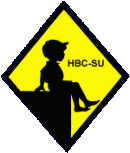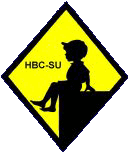
Some private (also called independent) schools, referred to as public schools in Britain developed as boarding establishments. This proved to be the case in Britain much more than any other European country. HBC is not yet sure why boarding estanlishments proved more important in Englnd than other European countries. It probably is tied in with the fact that the state system developed more slowly in Britain in some continedntal countrues like Germany. Some of the schools like Eton, Harrow, Rugby, and others are some of the most well known schools in the world. Many of these schools were very rough places for boys, as fictionalized in Tom Brown's Schooldays. School authorities in the late 19th century exeted more control over the pupils. Specialized schools for younger children appeared called preparatory schools. These schools were designed to meet the needs for pre-teen boys who needed more care and supervision than the teenagers at the public schools. While dedicated to care for younger children, they were organized as small versions of the public schools. This was because the purpose was to prepare the younger boys for the public schools. The original public schools have histories dating basck several centuries. Many more public schools were founded in the late-19th century provide educated people for Britain's developing industrial econonomy and expanding Empire. Like the public schools, many of these schools were boarding establishments. Educators debate the value of residential boarding. There are advantages and disadvantages. Here there are no absolute evaluation. Some children thrive and benefit from boarding. Other children do not do well away from home. Age is a factor that has to be considered here. Parental attitudes toward boarding have chanhed over time. What was once pursued as a matter if course is now discussed at lengthth by the parents involved who now commonly bring the children into the assessment. While many private schools have traditionally been boarding schools, all this has changed in recent years, especially for the younger children. The situation has lso become more compicated with the popularity of weekly boarding and various types of flexible boarding.
Some private (also called independent) schools, referred to as public schools in Britain developed as boarding establishments. This proved to be the case in Britain much more than any other European country. HBC is not yet sure why boarding estanlishments proved more important in Englnd than other European countries. It probably is tied in with the fact that the state system developed more slowly in Britain in some continedntal countrues like Germany. The original public schools have histories dating back several centuries. Many more public schools were founded in the late-19th century provide educated people for Britain's developing industrial econonomy and expanding Empire. Like the public schools, many of these schools were boarding establishments.
Some of the public schools like Eton, Harrow, Rugby, and others are some of the most well known schools in the world. Many of these schools were very rough places for boys, as fictionalized in Tom Brown's Schooldays. School authorities in the late 19th century exeted more control over the pupils. Specialized schools for younger children appeared called preparatory schools. These schools were designed to meet the needs for pre-teen boys who needed more care and supervision than the teenagers at the public schools. While dedicated to care for younger children, they were organized as small versions of the public schools. This was because the purpose was to prepare the younger boys for the public schools.
Almost all state schools and many private schools are day schools. Many private schools have traditionally been boarding schools. These included some of the best known British schools. There have been major changes in private education in recent years, especially the boarding aspect. This has changed significantly in recent years, especially for the younger children. Many modern parents are less convinced about the value of boarding for ypunger childtren. The situation has also become more compicated with the popularity of weekly boarding and various types of flexible boarding.
Educators debate the value of residential boarding. There are a range of advantages and disadvantages. Here we have to consier the needs and abilities of both the parents asnd children. There are a range of issues concerning parents. Both day school and boarding schools can do good job with both academics and extracuricular ctivitie. Often a major factor in school selection is the parents. some parents are not prepared for the separation, espoecially with the younger children. Another factor is parenting skills. Simply put, many parents are simply not vert=ry good parents. This may be because they do not have the appropriate skills or personality. In other instances they may not because of busy schedules have the time needed for good parenting. Some families live abroad. This includes businessmen, military, diplomats, missionsries and others. Educators debate the value of residential boarding. There are a range of advantages and disadvantages. And here there is probbly no definitive answer. Children learn differently. Some will do best at home with tgheir parents. Others will do better in a more structured boarding experience. Not only do children vsary, but parents also vary in tgheir sbility to help with their children's education. There are number of benefits to a boarding School. There are no absolute answers as to the value of a boarding school education. Some children thrive and benefit from boarding. Other children do not do well away from home. This depends on the personality of the individual child and how parents have raised them. A boarding school can be just the right choice for some children and disatrous choice for other children. And of course boarding schools vary. Some are a much better fit for an ikndividual child than others. Age is a factor that has to be considered here. It is more diufficult to send oiff younger children to board. We know of no research suggesting that boarding is harmful for your children. Here again children differ. Some children may not do well at a bioarding school, but this probably has more to do with the child's personslity yhsm age. Children may also differ at the age that is best to begin sa boarding education. This is soime thing the parents can best assess.
Boarding is a memorable experience for the children involved. Boarding school life at British schools has changed very significantly over time. There is no doubt that for many children, boarding was an unpleant experience, especially for boys not athletically inclined. There is today a much greater emphasis on academics and the arts. Sports are still important, but not as important as they once were. The changes at the schools have not been reflected in the popular image of the schools. A factor here is the left-wing orientation of the media which insists on focusing on social class issues and tends to perpetuate a negastive image of the schools, staff, and students. Of course the boarding experiemnce varies from school to school. Living conditions today are much more comfortable than they were even in the post-World War II era. Stark dormitories have been replaced by much more comfortable living arrangements.
Boarding school life also varies as to the type of school. The younger children at preparatory schools are much more closely supervised than the teenagers at public schools. And the residentuial living conditions are different. Prep school children are more likely to live in small dormitories with four to eight ither children. Public school students are more likely to have more privacy, perhaps with one to two roomates. A major change at many schools had been the addition of a range of recreational facilities that the children can enjoy in their free time. This has sigfiicantly changed the boarding experience as the chioldren spend so much time at school outside of the classroom. Many readers who attended boarding schools before the 1980s often mention boredom as a prevailing memory. This was often the case of the students not sports oriented. Boarding schools today commonly have the feeling of a summer camp where most of the children can find interesting and rewarding epursuits after classess as well as a more rewarding academic experience.
The situation has lso become more compicated with the popularity of weekly boarding and various types of flexible boarding.
British boarding schools are notables for a variety of well established institutions. One of the most important is the house system. Here the school is developed among houses. Often there is a separatevhouse for the day students. The houses have a house master to supervisde and are composed of students of varying age, the therory being that the older students have a positive influence on the younger students. The various houses compete with each other in sports and other activities. Another institution os the prefect system. And games (sports) as a part of the educatyional program is another important tradition established by British boarding schools.
Related Chronolgy Pages in the Boys' Historical Web Site
[The 1880s]
[The 1930s]
[The 1940s]
[The 1950s]
[The 1960s]
[The 1970s]
[The 1980s]
Related Style Pages in the Boys' Historical Web Site
[Long pants suits]
[Short pants suits]
[Socks]
[Eton suits]
[Jacket and trousers]
[Blazer]
[School sandals]
Navigate the HBC Country School Pages
[Main English School Uniform Residential Type Page]
[Main English School Uniform Residential Page]
[Australia]
[England]
[France]
[Germany]
[Italy]
[Japan]
[New Zealand]
[Scotland]
[United States]
Navigate the HBC School Section:
[About Us]
[Activities]
[Chronology]
[Clothing styles]
[Countries]
[Debate]
[Economics]
[Garment]
[Gender]
[Hair]
[History]
[Home trends]
[Literary characters]
[School types]
[Significance]
[Transport and travel
[Uniform regulations]
[Year level]
[Other topics]
[Images]
[Links]
[Registration]
[Tools]
[Return to the Historic Boys' School Home]
